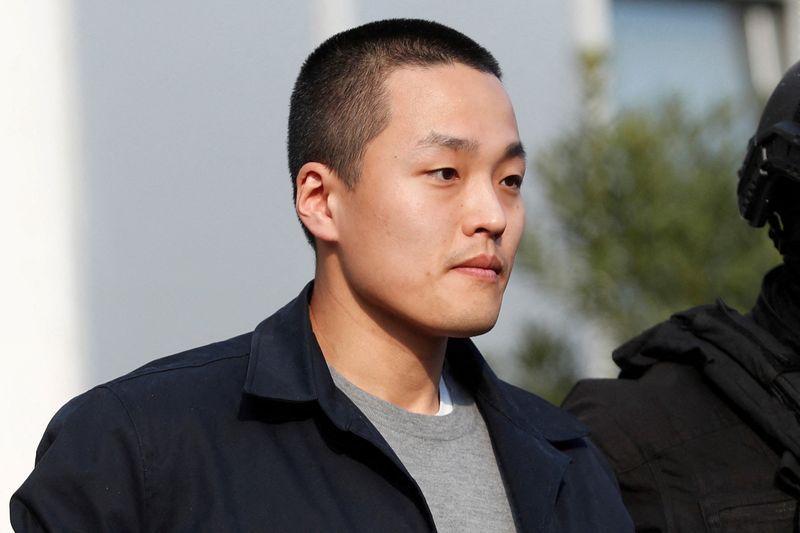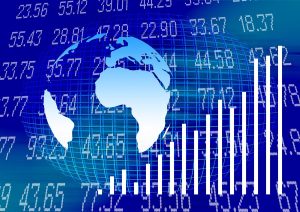
By Luc Cohen
NEW YORK (Reuters) -Do Kwon, the South Korean cryptocurrency entrepreneur behind two digital currencies that lost an estimated $40 billion in 2022, pleaded not guilty on Thursday to U.S. criminal fraud charges after being extradited from Montenegro this week.
Federal prosecutors in Manhattan on Thursday unsealed a nine-count indictment charging Kwon, who co-founded Singapore-based Terraform Labs and developed the TerraUSD and Luna currencies, with securities fraud, wire fraud, commodities fraud and money laundering conspiracy.
Kwon, 33, wore an olive green long-sleeved shirt and black sweatpants as his lawyer Andrew Chesley entered the plea at a hearing before U.S. Magistrate Judge Robert Lehrburger in Manhattan federal court.
The judge ordered Kwon detained after Chesley said he would not seek bail at this time. Kwon took a copy of the 79-page indictment with him as U.S. marshals led him out of the courtroom. He is expected back in court on Jan. 8.
Kwon had agreed last June to pay an $80 million civil fine and be banned from crypto transactions as part of a $4.55 billion settlement that he and Terraform reached with the U.S. Securities and Exchange Commission.
In Thursday’s indictment, the Manhattan U.S. Attorney’s office alleged Kwon misled investors in 2021 about TerraUSD, a so-called stablecoin designed to maintain a value of $1.
Kwon allegedly told investors a computer algorithm known as “Terra Protocol” had restored the coin’s value when it slipped below its peg in May 2021, when in fact he arranged for a high-frequency trading firm to secretly buy millions of dollars of the token to artificially prop up its price.
Prosecutors said that false claim and others drove retail and institutional investors to buy Terraform products and boost the value of Luna, a more traditional token developed by Kwon that fluctuated in value but was closely linked to TerraUSD, to $50 billion by the spring of 2022.
“Much of this growth followed Kwon’s brazen deceptions about Terraform and its technology,” the indictment said.
When TerraUSD’s value began sliding again in May 2022, the trading firm warned that propping it up “wasn’t so simple this time,” according to the indictment.
TerraUSD and Luna crashed that month, dragging down the value of other cryptocurrencies, including bitcoin, and caused wider havoc in the crypto market.
Prosecutors did not identify the trading firm. SEC lawyers said in their civil case that Jump Trading had propped up TerraUSD in May 2021.
Jump did not immediately respond to requests for comment.

